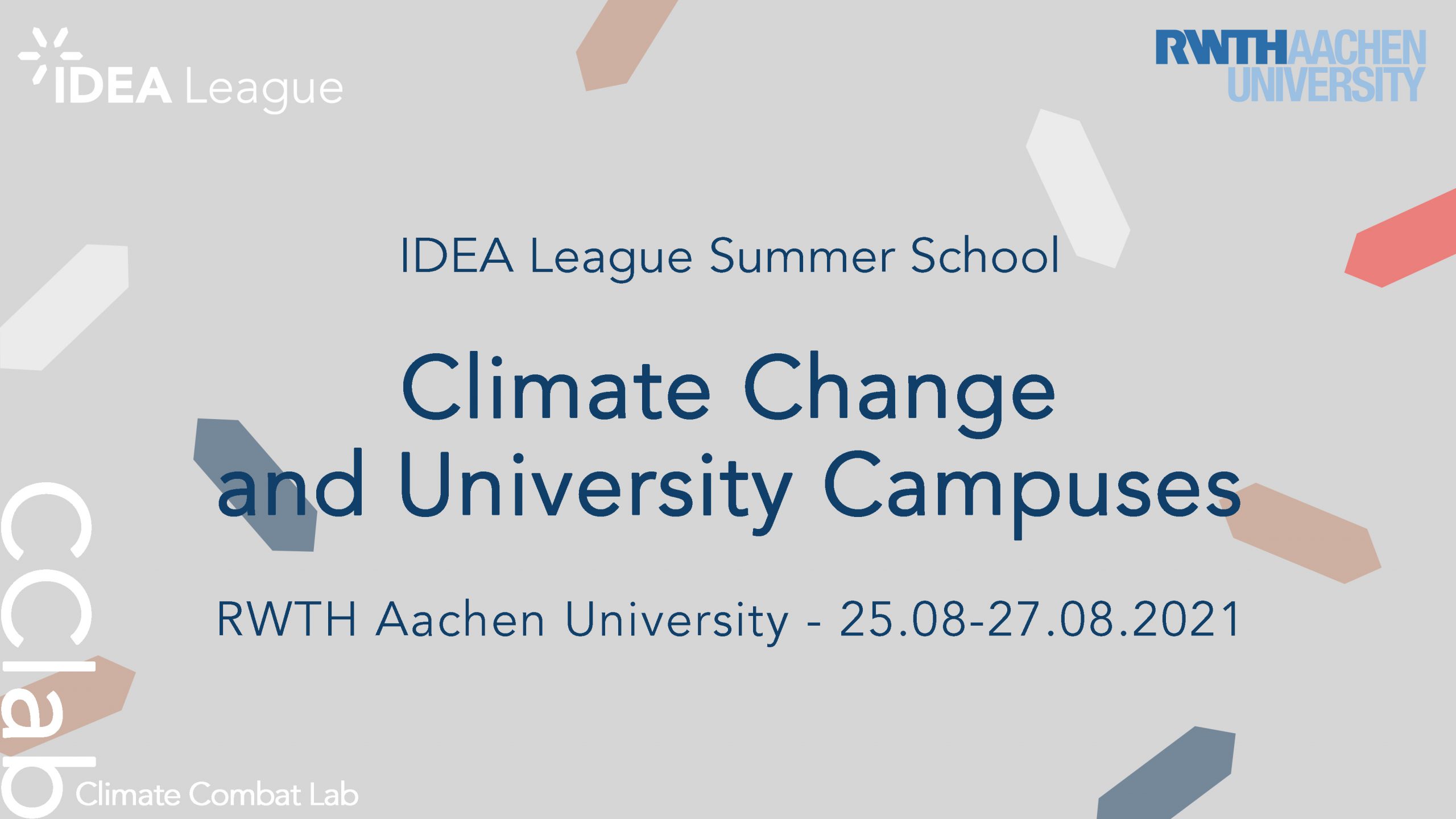TCR is organizing IDEA League Summer School Climate Change and University Campuses
TCR News August 10th
University campuses potentially may have a high impact on climate change mitigation, as they accommodate various high educated and skilled communities, who are well organised through students’ organisations, research and administrative bodies, and workers unions, among others. There is an increasing number of attempts to develop university-wide strategic plans and actions to combat climate change. Yet, a limited number of initiatives have been taken to mobilise university communities as active agents to mitigate climate change. This summer school facilitates an online interactive platform, the Climate Combat Lab (CCLab), which brings together students and academics to exchange and develop ideas on developing, testing and disseminating climate change mitigation and adaptation strategies and action plans for university campuses.
The Summer School is organized as five thematic workshops:
Workshop 1 / Governance
Host: Student organisation / Uni.Urban.Mobil – RWTH / Green TU-TUDelft and Marco Guerini, PoliMi)
Speaker: Prof Andy van den Dobbelsteen (TU Delft), Department of Architectural Engineering and Technology
Workshop 2 / Energy
Host: Student organisation, Energybirds – RWTH
Speaker: Prof Aaron Praktijno / RWTH Aachen University, Chair of Energy Systems Economics
This interactive workshop on sustainable energy systems deals with the overarching question of how we can transform energy supply and energy demand to meet the emission targets for the energy sector. We will explore the flow of energy from its primary forms such as renewable, nuclear, or fossil energy over intermediate forms such as electricity to its ultimate use for heating, mobility, or other uses. We will look at sector coupling and how it will influence future energy demands and energy flows. Finally, we shed light on methods for analyzing the transformation of energy systems by playing a serious game that we developed at our chair.
Workshop 3 / Design – green campus and nature-based solutions
Speaker: Prof Eugenio Morello / Politecnico di Milano, Department of Architecture and Urban Studies
The spatial dimension of sustainability will be at the heart of the workshop. We will explore how the campus setting – that is, open spaces and buildings, infrastructure and furnishings – can offer the university community opportunities for better lifestyles and behaviors and support the path to adaptable and resilient campuses. In particular, the integration of green solutions and new technologies spread across the campus can increase both sustainability and resilience, especially as regeneration strategies applied to established university contexts. In addition to the physical layout of the campus, its location (for example, urban or not) plays an important role in the activation and deployment of exogenous resources to reduce their environmental impact and, even more, in providing ecosystem services to the urban environment, thus helping to improve overall urban sustainability.
Workshop 4 / Circularity
Speaker: Prof Niklas von den Aßen / RWTH Aachen University, Life cycles in Energy, Chemical and Process Engineering
The workshop ‘Circularity’ will elaborate the concept and feasibility of establishing a closed carbon cycle, i.e., to become climate neutral. After a lecture about the concept, technologies and status quo of CO2 emission reduction, CO2 recycling and negative CO2 emissions, the participants will discuss the opportunities and challenges from several perspectives: what technologies are available or needed, what are the social and ethical consequences of carbon recycling and negative CO2 emissions, and what are the involved stakeholders and their ambitions? The participants will reflect these questions in the context of their university campuses. We will wrap-up the workshop with a differentiated opinion on whether and how it is possible to achieve circularity and climate-neutrality at university campuses.
Workshop 5 / Education
Speaker: Prof Davis Bookhart / The Hong Kong University of Science and Technology, Division of Environment and Sustainability
In this interactive workshop we will explore the connections between the way that we learn and our ability to solve problems in the most effective way for sustainability outcomes. Looking at the university structure, we will explore how the future of higher education is evolving to prepare students for 21stcentury “Grand Challenges,” with climate change being the most urgent. We will then dive into some insights of human nature and learning styles that often prevent us from making good sustainable decisions, and how we can overcome these mindset barriers to become better long-term thinkers and sustainable outcome-oriented.
